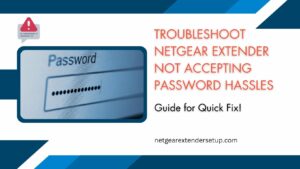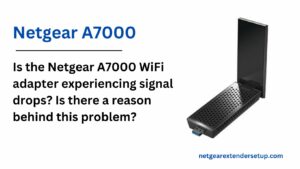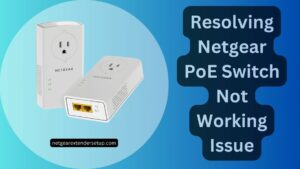I have consistently preferred Netgear networking devices to fulfill my internet requirements. Therefore, I opted to improve my setup by incorporating a Netgear range extender alongside my existing router.However, upon completion of the setup, I noticed a decline in internet speeds. If you find yourself in a situation similar to the one described, there are specific factors you should address. Let’s start by unraveling the question at hand: why is my Netgear WiFi extender slow? Can I provide assistance?”
Common Reasons for Netgear WiFi Extender Slow
Interference Issues
One of the primary culprits behind a slow WiFi extender is interference. Electronic devices, neighboring networks, and even physical barriers can disrupt the signal, leading to a significant drop in speed.
To mitigate interference, identify the sources and strategically place your Netgear extender away from them. Common interference sources include microwave ovens, cordless phones, and other electronic gadgets.
Updating Firmware
Much like any technology, WiFi extenders require regular updates to perform optimally. Outdated firmware can contribute to a decrease in speed and overall efficiency.
To address this, regularly check for firmware updates on the Netgear website and follow a simple step-by-step guide to keep your extender’s software up to date.
Optimal Placement
The location of your Netgear WiFi extender plays a pivotal role in its performance. Placing it too far from the router or in areas with high interference can compromise its effectiveness.
Opt for a central location, away from obstructions, and within a reasonable range of the router. Experiment with different positions to find the sweet spot for optimal coverage.
Avoiding Overload
Overloading your extender with too many connected devices can lead to a slowdown. Just like a highway during rush hour, too much traffic can impede the flow of data.
Manage connected devices efficiently, prioritize bandwidth for critical tasks, and consider upgrading your internet plan if the current one is inadequate for your needs.
Checking Network Speed
Before diving into advanced troubleshooting, it’s crucial to assess your current network speed. Numerous online tools can help you conduct a speed test and identify if the issue lies with your internet connection rather than the extender.
Interpreting speed test results can guide you in pinpointing potential issues and taking the necessary steps to address them.
Advanced Settings for Netgear Extender
While most users stick to the default settings, exploring advanced configurations can significantly enhance the extender’s performance. However, exercise caution, as improper adjustments may lead to connectivity issues.
Navigate through the extender’s settings cautiously, focusing on parameters that align with your specific needs and preferences.
Troubleshooting Connection Issues
Despite your best efforts, connection issues may still arise. This section provides a step-by-step guide to troubleshoot and resolve common problems, ensuring a seamless online experience.
From resetting the extender to adjusting channel settings, these troubleshooting tips will empower you to tackle connectivity challenges head-on.
Enhancing Security
Netgear WiFi extender slow may also be a consequence of security vulnerabilities. Securing your network with a strong password and enabling encryption safeguards your connection from unauthorized access.
Follow a simple checklist to enhance the security of your extender, protecting both your data and the integrity of your network.
Customer Support and Resources
If all else fails, don’t hesitate to seek assistance from Netgear’s customer support. The manufacturer offers various support options, including online chat, forums, and comprehensive documentation.
Additionally, online resources and forums provide a wealth of information and user experiences, offering valuable insights into unique troubleshooting methods.
Real-Life Tips from Users
Sometimes, the best solutions come from real users who have faced and overcome similar challenges. This section shares practical tips and experiences from the Netgear extender community, creating a sense of solidarity among users facing similar issues.
Conclusion
In conclusion, Netgear WiFi extender slow is a hurdle that can be overcome with the right knowledge and troubleshooting steps. By addressing interference, updating firmware, optimizing placement, managing device overload, and exploring advanced settings, you can breathe new life into your extender.
Take the time to understand your network, experiment with different solutions, and enjoy the benefits of a fast and reliable WiFi extender.
Read more: Netgear Extender Red Light
FAQs
A: It’s advisable to check for updates every few months and install them as they become available to ensure optimal performance.
A: While possible, it’s essential to manage them carefully to avoid interference and ensure a seamless connection.
A: Optimal placement involves a central location, away from interference sources, and within a reasonable range of the router.
A: Set a strong password, enable encryption, and regularly update your extender’s security settings to protect your network.
A: Contact Netgear customer support for personalized assistance and explore online forums for additional insights



